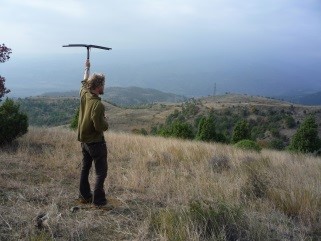
ResourcesContext dependent landscapes of fear with the grey wolf

Project:
Large carnivore decline and trophic downgrading is a common occurrence and something of great concern worldwide. The impacts of world-wide predator decline and the relative importance of direct and indirect species interactions have been highlighted as fundamental ecological questions. Caution has been expressed in seeing wolves as ecological saviours because ecosystem services may not always apply or may be inhibited by anthropogenic activity. It is important to understand how the impacts of apex predators are affected by this variable context and if this context can be manipulated to achieve management goals. A key question is whether the wolf’s impact on the use of space and time by other species is consistent and constant regardless of context. This study aims to improve understanding of spatio-temporal partitioning between wolves, ungulates (prey), mesopredators (competitors and sometimes kleptoparasites) and humans (competitors/predators). Interspecific interactions with the grey wolf will be examined in three geographic regions of Croatia (high, moderate and low human disturbance). The collaboration between Bangor University and Zagreb University will use GPS technology and motion activated cameras alongside traditional field studies to gain insight into how behaviour and interspecific interactions are affected by context. Knowledge gained will inform management decisions and conservation efforts.
Researchers:
Pete Haswell – Bangor University, UK
Links:

